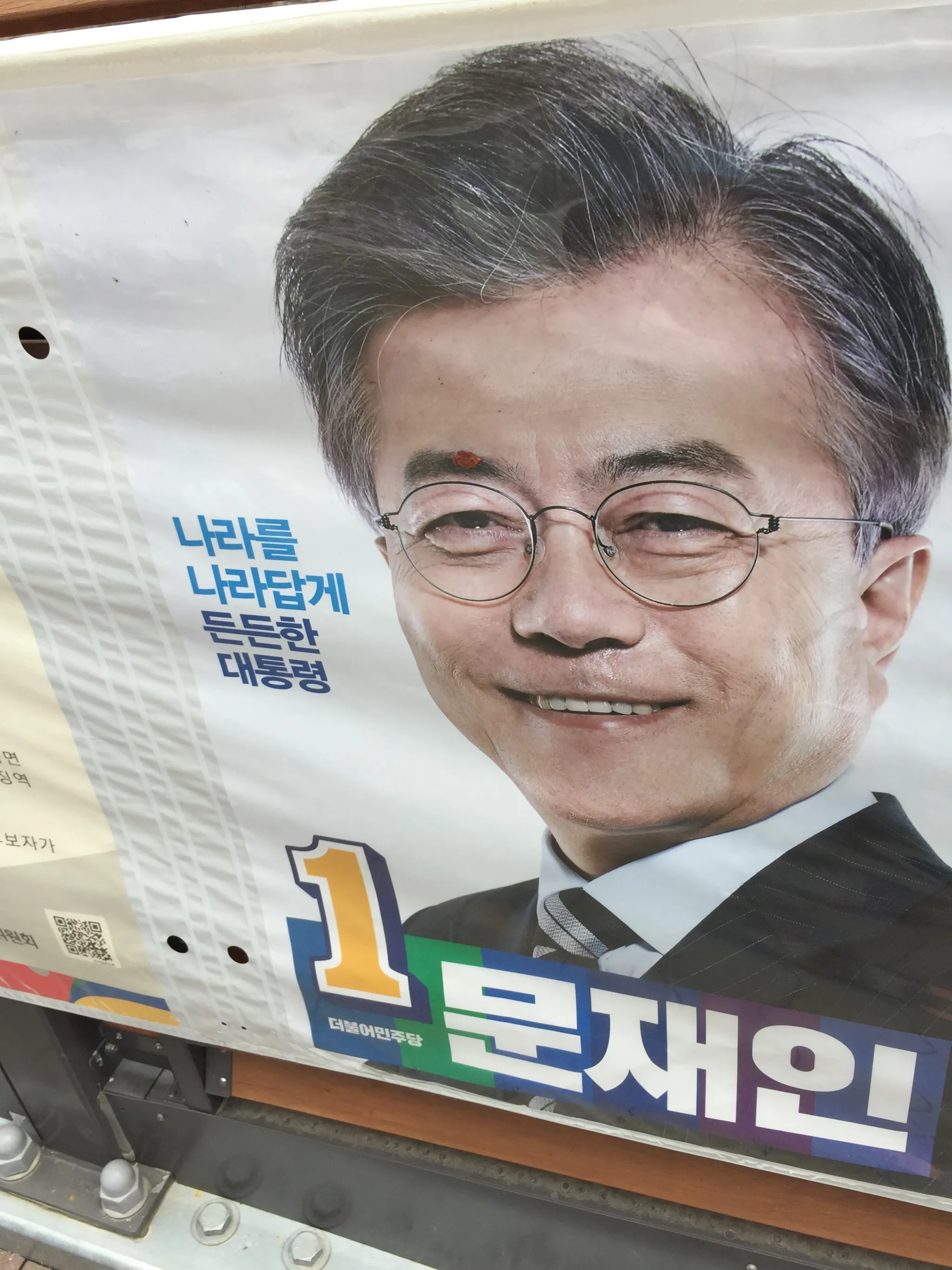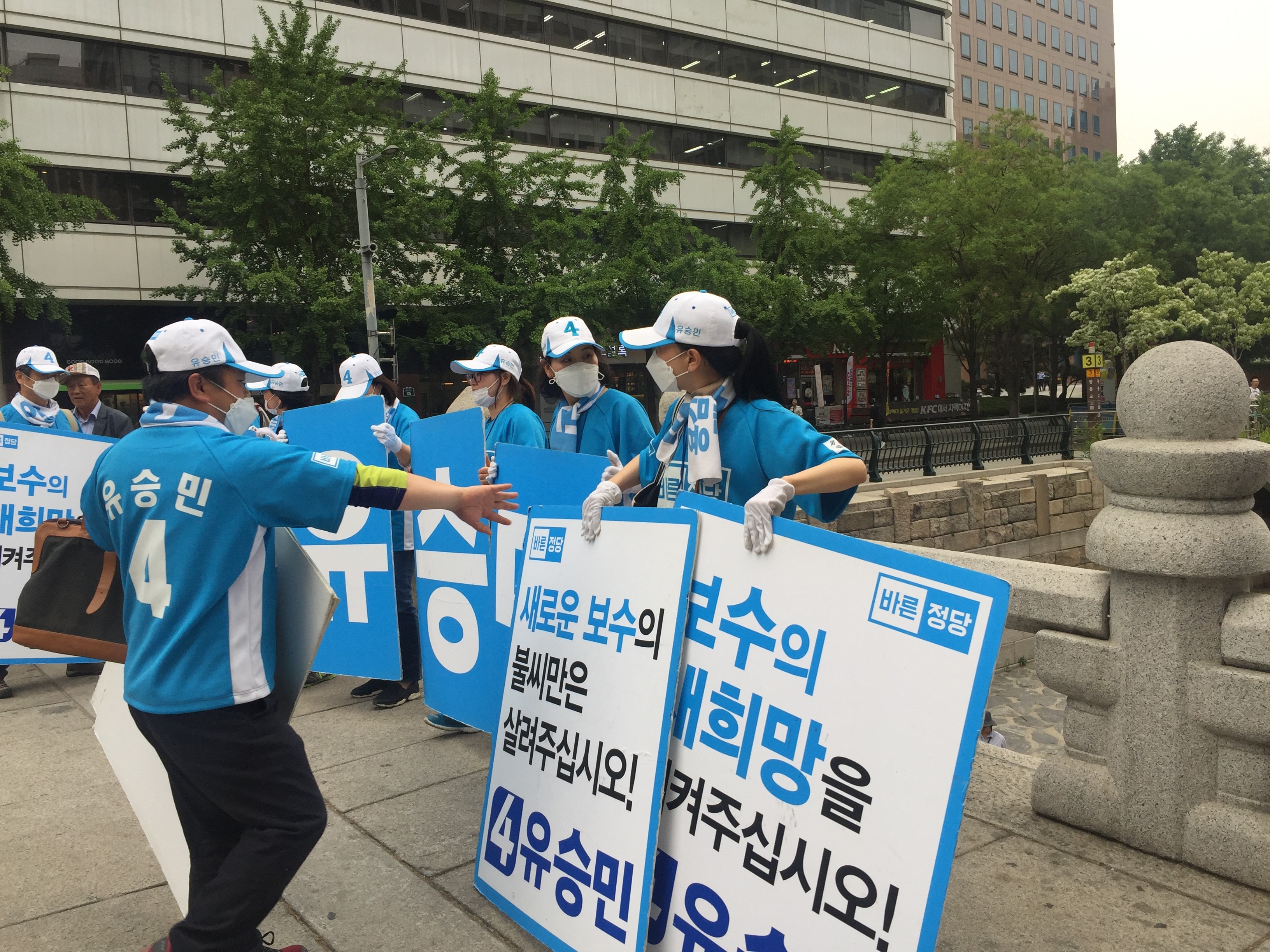Korean presidential elections–Testimony to democracy functioning in RoK

Disclaimer: Views expressed in this commentary are those of the staff member. This commentary is independent of specific national or political interests. Views expressed do not necessarily represent the institutional position of International IDEA, its Board of Advisers or its Council of Member States.
On Tuesday 9 May, liberal candidate Moon Jae-In decisively won South Korean presidential elections, ending nearly a decade of conservative rule. Voter turnout was 77,2 per cent which is highest in 20 years, albeit short of National Election Commission prediction of 80 per cent. Younger generations especially voted for more transparency, and against apparent influence of big companies in Korean politics. National security, while omnipresent and important, was but one factor amongst others. What is worrying the citizens is the potential abuse of power by the powerful presidency.

Photo: Leena Rikkilä Tamang
So what is likely to change, if anything in South Korean politics?
First, these elections were sparked by the removal of President Park Geun-hye from the presidency. Park’s impeachment was sparked by citizen protests which were unprecedented in many ways. Many Koreans still remember far too well the pro-democracy protests of June 1986 in which many protestors were killed, even when democracy was restored. This time, the protests eventually led to parliamentary motion to impeach President Park—a decision which was validated by the Constitutional Court. Park is currently waiting for her trial in jail. The charges against her include bribery, extortion and abuse of power. She denies all allegations. While the overall process has been described as painful and divisive by many Koreans, the constitutional process was followed through every step on the way. Korean democracy and political system showed its resilience against the shock waves.
Importance of dealing with inequality and employment, not only regional tensions
Second, there are high expectations for President Moon Jae-in to clean the politics from corruption and increase transparency. Inequality and youth unemployment are other challenges. While much of the world’s attention has been focused on the threat posed by North Korea and the security situation, many South Koreans do not expect radical changes in terms of national security policies. Many Koreans also did vote based on issues other than security policy grounds. “We have become perhaps numb to the threat of North Korea, the other issues, such as welfare system and youth unemployment are more important factors ”, mentioned Park Hye Jin from the Korean National Election Commission. President Moon Jae-In’s Democratic Party holds 40 per cent of the 299-seat assembly, which means he will have to build coalitions to pass legislation to advance any reforms.
Moving toward constitutional amendment
Third, given the painful experience over the past many months, and what was revealed about the ease of abuse of presidential powers, Koreans are contemplating a constitutional change and a move toward semi-presidential system, and hence removing some of the powers currently vested in presidency. However, a full-fledged parliamentary system is not yet in the cards. “Personally ,I am for [a] parliamentary system but the country is not yet ready for that", assessed an official from the National Election Commission of Korea.
It seems Koreans are not yet ready to do away with a strong presidency and all the appearances of determination and capacity to protect the nation, but are becoming more and more wary of the risks attached to such a powerful position.




